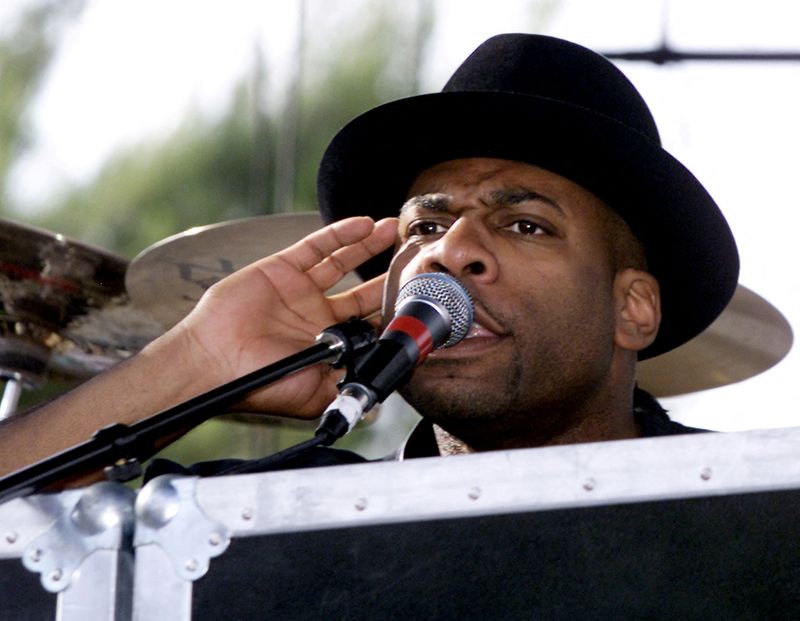By Jonathan Allen
NEW YORK (Reuters) -The godson and a childhood friend of Jam Master Jay were found guilty by a jury on Tuesday for the 2002 murder of the Run-DMC rap pioneer, who was fatally shot at his New York City recording studio in one of the most infamous killings in rap history.
Ronald Washington, 59, and Karl Jordan Jr., 40, were convicted of federal charges of murder while engaged in drug trafficking in the shooting of Jam Master Jay, the stage name of Run-DMC founding member Jason Mizell, the U.S. attorney's office in Brooklyn said on the X social media platform.
The verdict came after a month-long trial at the U.S. District Court in Brooklyn, where prosecutors called witnesses who were in the studio the night that Mizell, 37, was shot dead on Oct. 30, 2002. Those witnesses included Mizell's friend Tony Rincon, who was shot in the leg that night by one of Mizell's killers.
"It is no mystery why it took years to indict and arrest the defendants," Breon Peace, the U.S. attorney for New York's Eastern District, told reporters outside the courthouse after the verdict.
"The witnesses in the recording studio knew the killers, and they were terrified that they would be retaliated against if they cooperated with law enforcement and identified the ruthless executioners of Mr. Mizell," Peace said.
Both Washington and Jordan were well known to Mizell, who prosecutors said was killed in a business dispute over a lucrative deal to distribute cocaine in Baltimore. Washington was a childhood friend, and Jordan was Mizell's godson. All of them grew up in the same neighborhood in the New York City borough of Queens.
In the 1980s, Mizell and his Run-DMC bandmates helped usher hip-hop into the mainstream with hits including "It's Tricky" and the cover of Aerosmith's "Walk This Way" off the best-selling 1986 album "Raising Hell."
In their lyrics and stage shows, they were known to advocate against illegal narcotics. The group even recorded a "Just Say No!" anti-drug public service announcement in the late 1980s for the U.S. Drug Enforcement Administration.
But as Mizell's music-industry success waned in the 1990s, he turned to dealing cocaine to help fund his music career, according to prosecutors in the U.S. attorney's office in Brooklyn.
They also called witnesses who told jurors that Jordan and Washington confided to people close to them that they were the killers.
Prosecutors said Jordan and Washington conspired to kill Mizell after the musician cut them out of the drug deal in Baltimore worth nearly $200,000.
Lawyers defending Washington and Jordan both bluntly told the jury that the defendants did not kill Mizell. The defense called a single witness, an expert who testified on the frailty of human memory, in order to discredit prosecution witnesses recounting decades-old events.
Washington and Jordan face a maximum sentence of life in prison and a mandatory minimum of at least 20 years.
In May, a third defendant, Jay Bryant, was also indicted in the murder and is due to face a separate trial.
In the prosecutors' account of the night of the murder, Bryant, a friend of Jordan whom Mizell did not know, entered the front door and let Washington and Jordan in through a locked back fire exit, both armed with handguns, prosecutors said.

Mizell stood up from a couch to greet his godson. Jordan shot him in the head from a few inches away, killing him instantly, prosecutors told the jury. All three defendants fled moments later, they said.
Prosecutors said Rincon and other eyewitnesses were too afraid to tell police at the time who killed Mizell, and even fled New York in fear of their own safety.